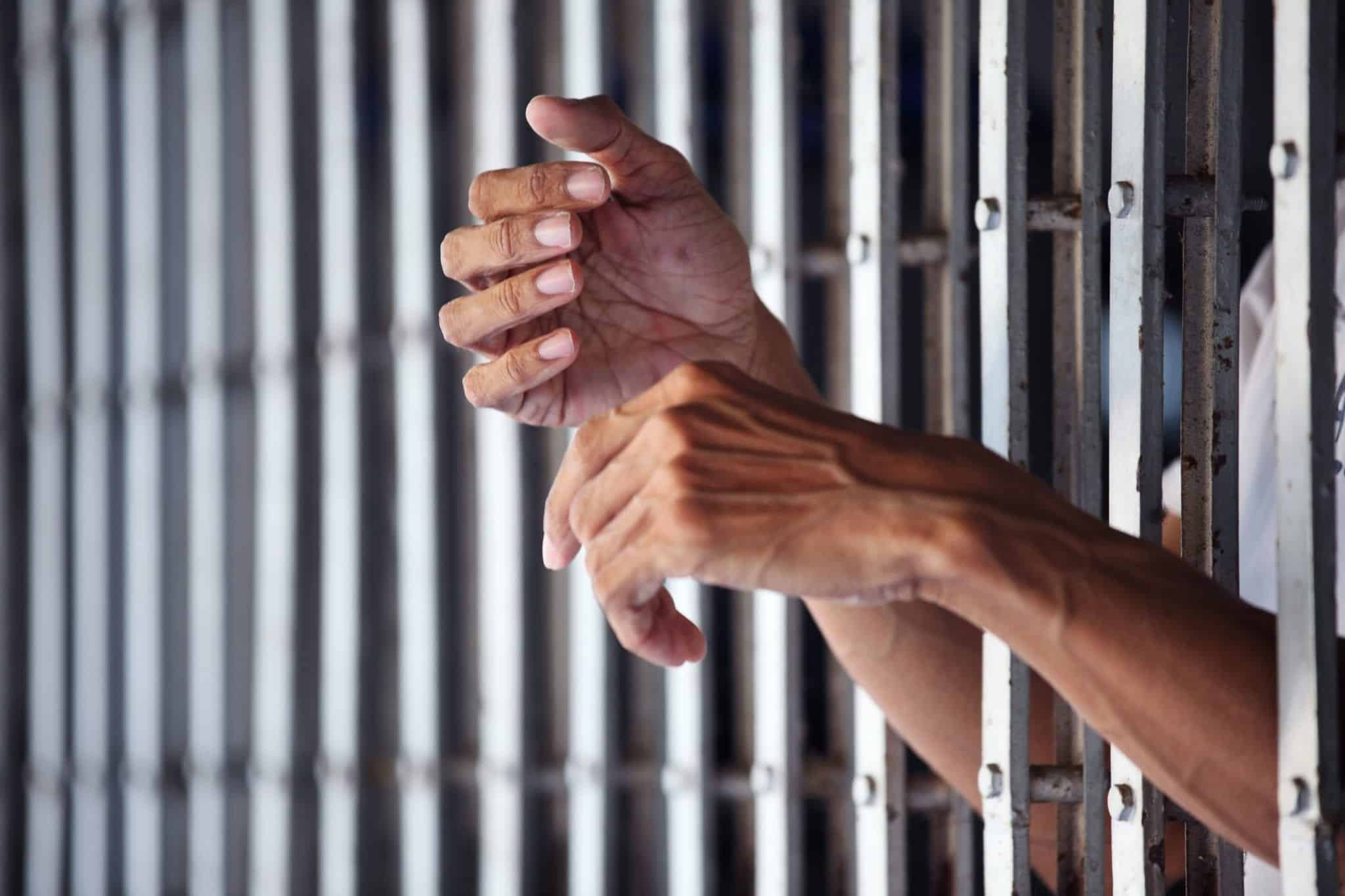
President Ronald Reagan’s “war on drugs” failed as miserably as President Richard Nixon’s “war on crime.” The only measurement of success for either effort was to pack the nation’s prison system with young and non-violent offenders of color and low income.
It was most of the young offenders Nixon packed into the nation’s prison system who triggered violent prison rebellions in the early to mid-1970s because of horrible overcrowded living conditions.
Graduates from these illustrious crime-training universities had become adults behind bars and made excellent targets (and casualties) in Reagan’s war on drugs.
These crime-busting wars created a social mindset that saw nothing wrong with sending petty criminals (who stole goats, cars and pizzas) to state prisons with life sentences that carried no possibility of parole.
The prison building industry emerged in the late 1970s and expanded through the 1990s as politicians came to realize not only the “law and order” benefits associated with building more prisons but the political donations (and the bribes) this new, corrupt industry was ready to give them for the license to build.
The federal government couldn’t resist, It forced its way into the corrupt industry: passing mandatory minimums for relatively minor drug crimes, some of which required sentences of life without parole for possessing no more than a few ounces of marijuana.
As with Nixon’s war on crime, the majority of offenders targeted by Reagan’s tough on crime legislation at both the state and federal levels were African Americans and Hispanics, especially in the South where prisons have historically been used to disproportionately oppress black people.
But the law of economics and the reality of numbers eventually caught up with the law and order politicians.
They learned that building prisons is relatively easy but maintaining them is extremely costly. Soon many states found themselves in the hard to explain position of having to spend more on corrections than on education.
So these same law and order politicians were eventually forced to create “prison reforms” designed to reduce inmate populations; mostly through sentencing reforms (eliminating or reducing mandatory minimums), increased goodtime incentives, and pretrial diversion programs.
President Barak Obama and a host of bipartisan U.S. Senators not only saw the economic difficulties involved in maintaining ever increasing inmate populations but realized also the injustices of putting an offender in prison for the rest of his or her life for relatively small amounts of drugs or non-violent crimes.
Obama and the lawmakers threw their political weight behind the need for sentencing reform and other programs designed to not only reduce the federal prison population but divert offenders away from the federal prison system.
The private prison industry started to implode. There were more and more empty beds in private prisons. An empty bed in a private prison represents lost revenue. Shareholders in these private prison companies demand warm bodies in those beds.
Private prison CEOs became apoplectic as federal sentencing reform legislation was being crafted and state legislature began to legalize marijuana for both medical and recreational purposes. Today some 29 states have legal medical marijuana laws and nine have legal recreational marijuana laws.
So what was a private prison CEO to do?
They donated substantial amounts of money to President Trump’s campaign because, as a candidate, he was promising to lock up everyone from jaywalkers to fake news producers.
Political donors expect something in return for their money.
The private prison industry not only expects to have warm bodies made available for their empty beds but a license to build more prisons to house more offenders, especially those illegal immigrants.
The problem is that these political private prison expectations run counter to the current government-run corrections agenda, mainly the need to reduce inmate populations at both the federal and state levels.
The Trump administration’s solution to this problem is simple: former U.S. Senator Jeff Sessions, from the conservative state of Alabama where prisons have always been used to isolate social undesirables, was appointed U.S. Attorney General.
The new U.S. Attorney General didn’t waste time. He immediately alerted the nation that we are in the midst of a crime wave comparable to the 1920s; that we must lock up more violent drug and gang offenders.
Following the lead of his Commander in Chief, Sessions simply manufactured his own crime statistics to justify this new nuclear “war on crime, drugs, gangs, illegal immigrants, and anyone else determined to be a threat to the current administration.”
Today’s crime rate is the lowest it has been since the violent 1970s through the mid-1990s.
But the one thing the people of this country have learned, regardless of political stripe or affiliation, is that the Trump administration has zero tolerance for inconvenient truths or real facts that get in the way of its agenda.
So who is the new face of crime through the eyes of Attorney General Sessions?
That would be David Lopez, a 56-year old Texas man from El Paso who was recently convicted on possession and drug conspiracy charges and sentenced to 24 years in a federal prison – the mandatory minimum for drug conspiracy charges. This means Lopez will most likely spend the rest of his life incarcerated, and if he does make it the full 24 years, he will be 80 years old when he’s released.
Federal prosecutors found that Lopez shipped marijuana from El Paso to other cities in the United States for close to 15 years, from 2001 to 2015. He was linked to drug busts in Texas, Kansas, and New Mexico where law enforcement officers discovered over 3,300 kilos of pot. He was arrested after he tried to hire an undercover agent and a DEA informant to transport the marijuana for him.
Significantly, however, Lopez was never connected to any acts of violence.
Nonetheless, he is now a “marijuana lifer” – a group of about 16 other inmates who are serving near-life sentences for marijuana – even though the drug is now legal in nearly two-thirds of the states.
At their very core, mandatory minimum sentences are unfair and too often cruel. More often than not, they are imposed on low-level, nonviolent offenders that wreak havoc on families and do little, or nothing, to keep communities safe. Scores of studies have shown that they have no deterrent value in preventing crime.
With the election of Trump and Sessions as the nation’s top law enforcement officer, it looks like drug crime mandatory minimums are here to stay.
Federal and Texas Marijuana Mandatory Minimum Sentences

Although states are legalizing marijuana in some form, the federal government still recognizes it as a Schedule I drug, which is “drugs with no currently accepted medical use and a high potential for abuse.”
That means that marijuana is in the same classification as heroin.
When a prosecutor decides to file charges that carry a mandatory minimum sentence, the judge cannot sentence the offender to a lesser sentence if convicted. It has to be the mandatory minimum – or an even harsher sentence.
Attorney General Sessions has already instructed his prosecutors to seek mandatory minimum sentences when possible.
Let’s look at marijuana possession as an example at both the federal and state level.
If you are charged with federal possession of marijuana, you could potentially face up to one year in jail for your first offense. A second offense has a mandatory minimum of 15 days in jail. A third offense has a mandatory minimum of 90 days. That’s for any amount, no matter how small.
In Texas, the mandatory minimum sentence starts at possessing four ounces of marijuana. If you have four ounces to five pounds, the mandatory minimum sentence is 180 days in jail. That increases to two years if you have between five and 2,000 pounds. More than 2,000 pounds carries a five-year mandatory minimum sentence.
Mandatory minimum sentences are a controversial topic, especially when it comes to nonviolent drug offenses. If you’ve been charged with a drug crime that has a mandatory minimum sentence, reach out to an experienced Texas drug attorney who will help you fight for and defend your rights.



